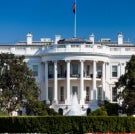As the old adage goes, a monkey left with a typewriter for an infinite amount of time would eventually write the complete works of William Shakespeare purely by chance.
The so-called Infinite Monkeys Theorem has long been used to demonstate the principles of probability and randomness, having been widely referenced in pop culture from The Simpsons to A Hitchhiker’s Guide to the Galaxy, and believed by some to owe its conceptual origins to Aristotle.
But a new study suggests that the thought experiment is “potentially misleading” – because our universe would have ended long before the monkey was able to type “all but the most trivial of phrases”, let alone the nearly 900,000 words comprising the works of Shakespeare.
For their study, published in the peer-reviewed journal Franklin Open, mathematicians Professor Stephen Woodcock and Jay Falletta from the University of Technology Sydney based their calculations on the heat death hypothesis, in which the universe expands to the point that it can no longer sustain life.
“The Infinite Monkey Theorem only considers the infinite limit, with either an infinite number of monkeys or an infinite time period of monkey labour,” said Professor Woodcock.
“We decided to look at the probability of a given string of letters being typed by a finite number of monkeys within a finite time period consistent with estimates for the lifespan of our universe,” he said.
They assumed a typing speed of one key every second, on a keyboard containing 30 keys and with an average word length of 5.7 characters.
The researchers found that, over the course of a single monkey’s lifespan, it would have a 5 per cent chance of successfully typing the word “bananas”.
But the chances of a monkey succeeding in typing even a short phrase quickly become vanishingly small, with the phrase “I chimp, therefore I am” coming in at one in 10 million billion billion. Comparitively, the chance of wining the lottery is judged to be one in 45 million.
Even assuming that a global population of 200,000 monkeys is unlisted until the eventual heat death of the universe in an assumed googol of years – a one followed by 100 zeroes – the chances of their population randomly reproducing the plays, poems and sonnets of Shakespeare remain extremely unlikely.
“It’s not even like one in a million,” study co-author Stephen Woodcock of the University of Technology Sydney told the New Scientist. “If every atom in the universe was a universe in itself, it still wouldn’t happen.”
Source: independent.co.uk



